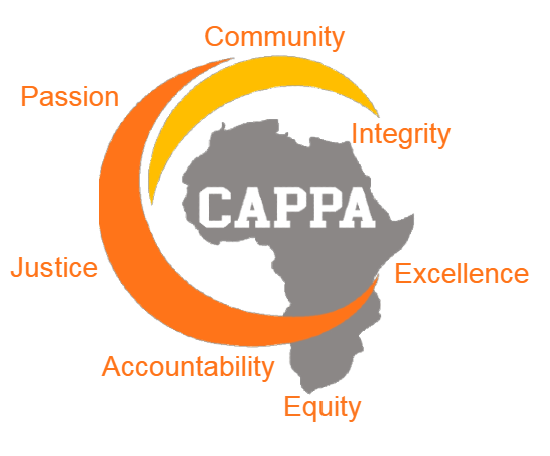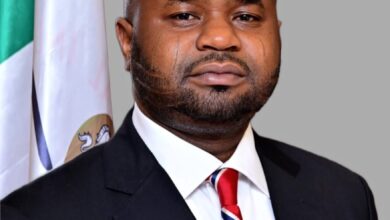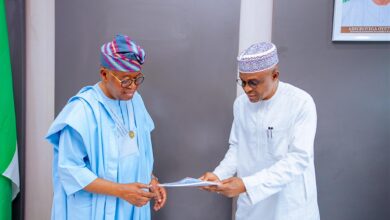CAPPA Urges FG, NELFUND To Preserve Intellectual Freedom In Student Loan Policy
...Warns Against Transforming Fund Into A Discriminatory Policy

The Corporate Accountability and Public Participation Africa (CAPPA) has called on the federal government and Trustees of the Nigerian Education Loan Fund (NELFUND) to abandon plans to restrict access of the loan to specific courses deemed “high demand” and “practical” to national development.
In a statement issued by the Media and Communication Officer, Corporate Accountability and Public Participation Africa (CAPPA), Robert Egbe on Thursday, the organisation described this potential direction of the policy as discriminatory, a clear manifestation of the increasing commercialisation of public education, and a betrayal of the Fund’s original mandate to ensure access to higher education for all, not just a privileged few.
Speaking during a virtual event titled Student Loan Masterclass, hosted by The Renewed Hope Global recently, NELFUND’s Managing Director, Akintunde Sawyer, was quoted announcing a soon-to-be-implemented shift of the Fund’s priorities.
Under the proposed change, loans would be directed towards students in “practical” fields such as engineering and medicine, as well as disciplines that offer exportable skills with potential for overseas employment, like information technology. In contrast, disciplines like “language studies” would no longer be prioritised, as, according to Sawyer, they contribute “less” to national development and suffer limited job opportunities, which could make it difficult for graduates and borrowers to repay their loans.
CAPPA has, however, expressed concern that such revision will further marginalise students pursuing disciplines in the humanities, arts, and social sciences, perpetuating systemic inequalities in the education sector.
According to the organisation, “This unfair attempt to narrow the policy’s beneficiaries comes at a time when tuition for so-called “marketable” courses have skyrocketed across public higher education institutions, with fees surging from N19,000 to over N200,000 in schools like the University of Lagos and Ibadan, primarily due to worsening economic conditions, which have forced poor students to drop out or resort to undignifying activities to generate money for their school fees .”
“Ironically, even graduates from the purported economically viable fields are struggling in Nigeria’s job market, where the unemployment rate remains at an all-time high, and the minimum wage is too low to stem the tide of the Japa Syndrome, a survival trend that has seen Nigerian youth, workers and professional, flee the country in droves in search of better opportunities abroad.
“If even these “practical” fields offer no secure future within the country, what is the rationale behind sidelining other disciplines? If the state cannot create jobs or maintain an economy that supports diverse intellectual dreams and pursuits, why should students bear the consequences of its failures and shortcomings?” queried the CAPPA Statement.
“By tethering education to perceived economic value, the state is effectively telling us that learning only matters if it can be sold on the open market. Sadly, this misthinking will only fuel the growing frustration and disillusionment among young Nigerians.
“Those who, lacking resources, wish to concentrate on vital fields like language studies will find themselves overlooked and mocked in an educational system—and, by extension, a society that arbitrarily decides which studies are important or not,” said Zikora Ibeh, CAPPA’s Senior Programme Manager, Research and Policy. Ibeh warned that such a narrow focus would undermine the role of diverse academic disciplines in fostering critical thinking, economic growth, and holistic national development.
CAPPA likened the proposed policy revision to past regressive actions, such as the removal of history from the country’s secondary school curriculum in 2009, which they said deprived generations of Nigerian students of the opportunity to interrogate and understand their past.
It cautioned that the emerging development around the student loan scheme risks undermining the teaching profession in Nigeria and will lead to a diminution in the number and morale of teachers across educational levels and what are deemed non-essential subjects.
“With the Fund headed towards disqualifying and discarding entire fields of knowledge falsely qualified worthless, teaching, especially in less financially rewarding subjects, might be considered an even less attractive career path. This will definitely exacerbate the challenges of low remuneration and lack of professional development opportunities that teachers already face, further entrenching the issues of high turnover, brain drain, and general dissatisfaction in the profession.
“Regrettably, this development is unfolding against the backdrop of a chronic underfunding of the education sector. With a mere N3.52 trillion proposed for education in the 2025 budget—just about 7.3 per cent and well below the globally recommended 15 to 20 per cent—classrooms across the country are left crumbling, with educators perpetually overburdened, and students short-changed. Instead of addressing the persistent challenge of under-investment, officials have chosen to double down on a discriminatory policy that will deepen inequality, fracture the education sector, and leave Nigerian students even further behind.
“CAPPA calls on all Nigerian students, academics, citizens, labour unions, and civil society to firmly reject this short-sighted and divisive approach.
“We urge the Federal Government and NELFUND managers to undertake an immediate rethink of plans to transform the student loan into an anti-intellectual scheme. Nigeria needs a bold, inclusive vision that recognises the value of every field of study in advancing collective development.”
The organisation called on the government to prioritise education at all levels and across all disciplines by increasing the budgetary allocation to the sector. Additionally, it urged the government to invest in vocational training programs, bolster key sectors such as electricity and transportation systems, and ensure the provision of basic amenities. These measures, it noted, are crucial for spurring national development and creating a conducive environment where citizens can thrive.











